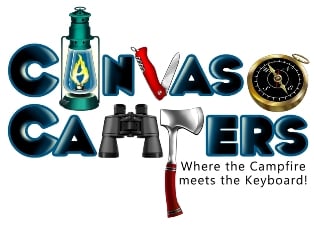When you go hiking and camping in the wilderness there are ten essential items you need to take with you to help avoid getting lost and to help you keep warm and comfortable and ensure you can be easily found if you do get lost:
- Map
- Compass
- Whistle
- Cell phone
- 1 to 2 liters of spare water (gatorade crystals are also recommended) and a high energy food bar
- First aid kit
- Flashlight with extra batteries
- Some matches or a lighter
- Extra warm clothing including hat, gloves and jacket
- A pocketknife with quality cutting blade
Some tips to avoid getting lost
Bad weather or early darkness can turn an easy hike into a challenging one. Here are some tips to help you avoid getting lost:
- Check the weather before you leave and don't set off if bad weather is forecast
- Stay on well-marked trails, you are also more likely to meet other hikers or campers who can give you directions
- Never camp or hike alone, if you are in a group you are less likely to get lost
- Know how to use and follow the map you have for the area you are about to enter into. Check your route out with the local rangers or other hikers before you set off
- Know how to use a compass to keep track of the direction you are going and the direction to get back to where you started
- Be aware of your surroundings. Look for any obvious landmarks that are easily recognizable such as trees, rocks, hills and streams. This will help you get your bearings
- Look behind you from time to time if you are going to be returning the same way. See how the trail looks so you are familiar with it when you walk back
What to do if you are lost
If you should find yourself lost, remember these tips:
- Look for trail markers. Following these markers will lead to a ranger station or an area where help can be more easily found.
- Use your cell phone. If you have a cell phone and can obtain a signal, try contacting your group and/or park rangers. Look for any obvious landmarks that you can share with them to help identify where you are located
- Never camp or hike alone, if you are in a group you are less likely to get lost
- Blow your whistle. A whistle blow can be heard miles beyond the range of voices, making it an excellent tool for locating those who have lost their way. When sending out a distress whistle blast do three short blasts in timed intervals of 1 to 5 minutes and in different directions from where you are standing as rescuers may be above below or to the sides of you. Also blow it if you hear sounds near you. An animal will run away when the whistle is blown and a searcher will be able to find you by following the tones.
- Look around for a safe, sheltered place where you can wait for help to come looking for you. Don't keep walking in unfamiliar territory as you will still be lost, but only farther away. This could mean that your rescue will take longer to get to you because you could be far off your trail
- Stay dry. Try to stay as dry as possible and out of the wind. If you start to get cold, roll up into a ball to keep warm and start a campfire (see next point)
- Start a campfire, see our article on How to safely build a campfire. Smoke is a great way to draw attention to where you are and to keep you warm if you are cold. Managing the fire will also help keep you occupied while you wait
- Don't panic. If you are with a group they will most likely realize you are lost before you do. They will tell the ranger and call the police and searchers will begin to look for you ensuring that you will be found quickly. Also you should have filed a wilderness permit if in the backcountry and told other people where you were going, so when you don't return on schedule the ranger and others with start looking for you
By being prepared you will enjoy your trip, reduce the chance of getting lost and in the event that you do get lost, you'll be able help others to find you quickly and keep yourself safe and warm while you wait.
I'm an avid hunter residing in northeastern PA. I got lost once back in 2008. I was carrying a treestand, back pack, and bow up a 500 yard hill in the dark with only my headlamp. I kept getting off track as the load got heavier. I finally abandoned the gear and realized how way off track I was. No cell reception, and I couldn't even hear the horn blasts of one truck looking for me. I spent the next 4 hours circling a swamp trying to find the right chute out. I made it out the woods battered, and bruised at midnight. I learned that the worst you can do is keep on moving. I was out of water, tripping all over, and could have severly injured myself at any momemt.
769
350
1 Guest(s)

